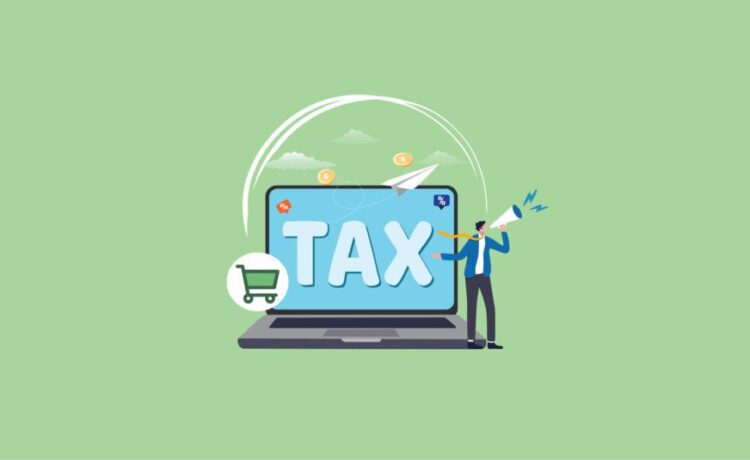Finding accurate tax rates can be a challenge, especially when rates vary by location. With a Tax Zip Code Finder, you can quickly and easily discover the tax rates specific to your area. Whether you’re budgeting for personal expenses or managing a business, this tool simplifies the process, ensuring you stay informed and compliant.
Read on to learn how a tax zip code finder works and why it’s an essential resource for managing your finances.
Unlocking the Mysteries of Local Tax Rates: Why They Matter
The Role of Tax Rates in Your Financial Health
Tax rates can make or break personal finances. Everything from income, to the assessed value of properties you own and sales taxes you pay is tied directly to these rates, and understanding them can help you in making informed decisions that can positively impact your finances. The local tax system can differ dramatically, which can affect how much money you keep in your pocket or influence your investment decisions. Knowledge of local tax rates goes beyond compliance; it plays a crucial role in effective budgeting and in maximising opportunities for savings. Higher sales taxes may cause people to think twice about how much they buy or look at where to buy the goods. Local tax rates can also influence your overall financial health, including potential eligibility for a variety of tax deductions or credits that might have specific local parameters.
Understanding the Impact of Local Taxes on Your Community
These local taxes are imperative to funding and developing communities. Local taxes regularly fund school districts, public safety, infrastructure projects and public health initiatives. So, knowing how local tax rates are derived and distributed makes residents aware of the direct impact on community services and overall quality of life. Some community with higher local taxes may find you may be paying your police, fire department and public education through those higher local taxes, conversely lower tax rates may play to services that are eventually underfunded, which translates you’re lower of a level of standard of living in those communities. Discussing local taxes can help citizens lobby for efficient fiscal management that meets community needs.
Comparative Analysis: Local vs. Federal Tax Rates Explained
Although the federal tax system is generally intended to be uniform across the United States, local taxes can differ greatly not only from state to state, but from locality to locality within a state. There are federal tax rates based on your income, which can break down into several brackets, but local taxes can involve property, sales and income taxes — all established separately by local governance. This difference is often misleading, making residents think their total tax burden is much lower than it is. Example: In areas with low federal taxes, local governments can balance the difference with higher property taxes or sales tax, which can affect affordability and economic mobility. Understanding these differences can help taxpayers better predict their financial responsibilities, and shape decisions about where to live and invest.
Your Guide to Using a Tax Zip Code Finder: Step-by-Step
Navigating Tax Code Landscapes: The Basics of a Tax Zip Code Finder
The Tax Zip Code Finder is an invaluable tool for anyone seeking to navigate the complex landscape of local taxation. These tools issue accurate tax rate information based on your postal code, meaning you can readily access financial data most relevant to you without sifting through dense regulatory documents. Many of these online resources are easy to use, with simple interfaces where users can enter their zip code, and receive information such as sales tax rates, property taxes, and even local income taxes. The basics of using these tools will allow you to quickly find relevant information that is important not only for your personal finances but also business decisions.
Maximizing Your Experience: Tips for Effective Searches
When using a tax zip code finder, there are a few tips you should keep in mind to make the most of it. First, know what information you specifically want – a general overview of rates or what services are funded with local taxes. It may also make sense to cross-reference the data from multiple tax zip code finder resources to make sure you are working from the most accurate and up to date information possible. Ironically, there is no guarantee that municipal tax rates are all updated at the same time, and you should always check with Government of Canada or local tax boards to validate any information you receive. Also check to see if other local fees may apply. This is due diligence that can save you from unexpected financial burdens later on.
Uncovering Hidden Insights: What the Data Reveals
What you can also discover by diving deeper into the data provided by tax zip code finders is surprising details about your locality that could help guide your money decisions. As an example, a dive into tax data could yield trends of local property values, count of tax exemptions granted, and insights into the fiscal endurance of the local government entities. Such insights can allow residents to see more clearly the state of economic vitality in their community. Additionally, knowledge of how local taxes relate to community services can influence decisions on home purchases or business investments. Tax rates could also provide insight on future opportunities for community development — indicating areas that are likely to draw new residents and businesses as a result of attractive tax conditions.
Innovation Meets Taxation: The Future of Tax Lookup Services
Emerging Technologies Shaping Tax Information Access
Technology is rapidly evolving and has a significant impact on how tax information is distributed and to whom. Tax lookup services also leverage new-age technologies like AI and machine learning that provide more accurate, personalized results. By analyzing vast amounts of data, these technologies can personalize insights and deliver predictive analytics to help individuals and corporations estimate their tax liabilities more precisely. Additionally, when these user-friendly applications are combined with mapping technology, it could allow users to visualize certain tax implications by location, which can assist in decision-making in terms of real estate purchases or moving. (1) These improvements are a step towards improving the accessibility and clarity of tax information to promote responsible financial management among taxpayers.
The Rise of Mobile Applications for Tax Navigation
Mobile tax-filing apps are rising as smartphones are central to our everyday lives. These apps often have intuitive designs that let users find tax info quickly, based on their location. Plus, many of these apps offer more than just local tax rates; they issue alerts about changes in tax laws or looming deadlines, making it easier for users to stay compliant with minimal effort. They could even integrate budgeting tools incorporating local tax rates into users’ holistic financial plans. Mobile technology continues to scale and more innovations will surface, offering taxpayers additional tools for local tax compliance and management.
The prevalence of online tax resources creates a demand for accuracy and reliability of data. With local taxes becoming increasingly significant, the onus is therefore on these services to deliver timely and accurate information. Improved techniques for data aggregation and agreements with one or more governmental tax offices are positive options for improving the integrity of tax information. Systems will likely know real-time tax rates, local changes on future taxes, and more, and help revise taxpayer plans. With users being more critical than ever, the attention will be on platforms that provide information but guarantee high levels of accountability and trust.
Managing Your Taxes Like a Pro: Strategies for Success
Budgeting with Local Tax Rates in Mind: A Comprehensive Approach
Here are some things to keep in mind when setting your budget: Start with your income and include local tax obligations of your area, a legitimate guide to disposable income. Sales tax and property tax may vary, as well, and any such difference in jurisdiction can impact spending habits and savings goals. Creating an agile budget able to flex with the evolving tax landscape gives you a head start using tax zip code insights to help hone in your strategy. Staying abreast of local tax changes like this also helps you adjust your budget so you can jump at opportunities as they come up.
Utilizing Tax Information for Smart Investments
When it comes to making investment decisions, it can have a significant effect how much you may know about local tax rates. Investors must reflect on the impact of local taxes on real estate purchases, business expenses and other investments as they plan for concerns about return on investment. Property tax rates can play a considerable role in the selection of investment properties; as areas with lower taxes can allow for richer yields by offering low overhead costs. Likewise, insight into incentives or deductions available in some places might lead investors to focus on those LMEs for development or acquisition. Utilizing the Local Tax Data helps an individual to minimize his investment portfolio and to take more accurate investment decisions.
Personal Tales: Real-Life Experiences with Tax Rate Discoveries
Real-life experiences often illuminate the importance of understanding local tax rates. One individual might share how discovering a local tax exemption for school supplies during tax-free weekends changed their budgeting approach for back-to-school shopping, ultimately saving them substantial sums. Another might discuss navigating business expansions in different zip codes, revealing how variances in local tax incentives played a pivotal role in deciding where to operate. Such personal narratives emphasize the profound impact that being informed about local tax rates can have on financial decisions. Sharing these stories serves as a reminder to continually seek out and engage with tax information, ensuring that individuals and families are equipped to navigate their local tax landscapes proactively.










